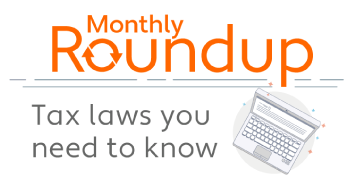
How food gets taxed - Will's Whiteboard
Taxing food is anything but simple. How you sell an item and how it's made can completely change the sales tax rate you need to charge. Watch this video to learn more about the mixed-up world of food taxability. And beware the room-temperature gravy . . .
Transcript
Hi, welcome to Will’s kitchen. I’m Will. When a lot of businesses think about how to get sales tax rates to charge their customers, they’re thinking about where their customers are located and what rates apply there. Well, there’s another set of rules, product taxability, that also governs which rates you should use to sell your products to your customers. Which products are exempt, for example, and which are taxable.
So to illustrate this, we’re going to look at some food items here today, and we’re going to use the taxability rules from the great state of Kentucky, because food product taxability rules can get pretty mixed up. So first up, I have with me these lovely organic carrots, and in Kentucky, most foods sold for human consumption like in a grocery store, is not taxable.
Next up, I have this delicious home-made sausage gravy, it’s a little cool now, but this was a prepared food item technically that I purchased either to consume there on the premises, or right after with some utensils. And this bad boy is taxable. And as you can see, the consistency is a little thick, so I’m just going to go ahead and squeeze right on in there. Great.
So the next thing I have is this bottled water. Bottled water it turns out is not taxable. Another beverage, a Diet Coke here. Now, soda in Kentucky is taxable. And that would be true if it was diet or just regular.
How about this apple? Pretty easy one like the carrots, not taxable. Next we have some delicious M&Ms;, what do you think? Taxable or nontaxable? Well, candy is actually not considered food according to tax law, therefore it is taxable. Another candy here, taxable right? No. Turns out this Twix here has some flour on it, which puts it back in the food category or the non-taxable category.
Fireball Whisky, what say you? It’s taxable. In most states, alcohol is taxable. Although you’ve got to pay attention to excise rates when it comes to booze. Just a healthy amount in there.
Raised glazed doughnut, mmm, love these things. Now, it turns out that baked goods, even though you might think prepared food, they’re not taxable. How about this sushi? For those of you who like to go exotic, we have this. This is prepared food much like the sausage gravy, so it is taxable. It’s kind of cold and slimy, but delicious.
Now, I’m sorry. I’m being a little distracted, but if I’m honest, it’s because there’s all this food and I’ve yet to mention something that can help you if you have indigestion. I shouldn’t mock indigestion, it’s a very serious condition. This Pepto-Bismol here is taxable. It’s not like a food item, so I’m going to go ahead and put it in with the other things, ignoring the splash. Similar consistency to the sausage gravy.
So there you have it in terms of food items. As you can see, it’s a real mix-up here. When it comes to food product taxability, if you don’t know the rules, it can be a pretty hard thing to swallow. So you’re gonna wanna look at your state, and where you have a nexus and really get a handle on the food product taxability rules. Because they’re, again, can be a hard to swallow.
That’s is it for me, I’ll see you next time.












